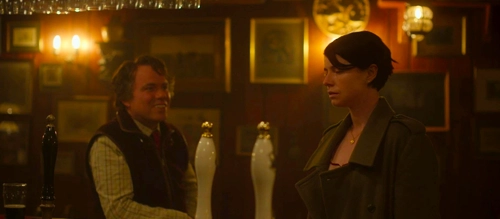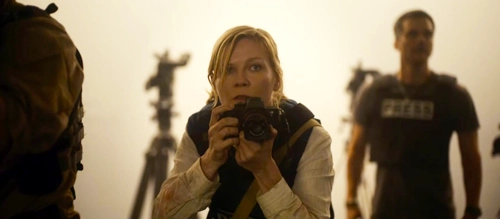Alex Garland Directed Films Ranked
Making his start as a novelist and writing scripts for directors like Danny Boyle (28 Days Later and Sunshine), thought-provoking ideas man Alex Garland learned from the talented filmmakers he so closely collaborated with, did some uncredited work to finish the troubled comics adaptation Dredd, and then eventually made his full directorial debut in 2014.
Garland’s films tend to be cerebral sci-fi or psychological horrors, often tackling the biggest ideas about what makes us human while also being extremely visually striking and technically accomplished, though their ambiguity and challenging themes usually prevent them from being truly commercial despite the stars lining up to work with him.
Recent reports suggest that his fourth film as director, Civil War, may be his last due to his increased dissatisfaction with the workings of the film industry, so what better time to celebrate the stories he has brought to the big screen over the course of a decade?
Based on critical reception, as well as the uniqueness and vividness of his ideas, these are all four of Alex Garland’s films ranked from good to great.
4. Men (2022)

Small-scale in geographical terms, but emotionally huge and deeply seeped in folk horror and the mythology of the British Isles, Men was always going to be a divisive prospect to put it mildly.
Harper (Jessie Buckley), a victim of domestic abuse, flees to an Airbnb in the countryside to decompress. There, she is further tormented, this time by the men in the village, all of whom seem to share the same face (Rory Kinnear).
Owing a lot to the more horrific work of Ken Russell and David Lynch, Men is full of unnerving imagery and is bold (arguably a little heavy-handed) in its confrontation of toxicity. The idea of getting the same actor to play a whole village, a full range of male inadequacies and threatening behaviours, is a stroke of mad genius, even if the way they are differentiated through a combination of hair, makeup and more elaborate, inconsistent and off-putting VFX can be hit-and-miss.
After a gradual build, an uncomfortable seeping in of oppressive atmosphere with hints at something supernatural linked to the mythological figure of the Green Man, things go really batshit. This one has a deranged final act for the ages, going for broke with surrealist body horror to sledgehammer its message and make you question everything you’ve been watching for the last 100 minutes.
There will be all the usual cries of “not all men” and that’s precisely the point – Harper’s traumatised, shell-shocked perspective, and the ways in which she is gaslit by authority figures and begins to doubt her sanity, stands in for the experiences of so many women and their waking nightmares. Men is either a film for you or it isn’t, but if it isn’t, maybe you should question what in it you are objecting so strongly to and why.
Recommended for you: Making Sense of Alex Garland’s ‘Men’
3. Civil War (2024)

*Chandler voice* could this be any more timely?
The idea for this script came to Garland during the first Biden/Trump election campaign and, due to a combination of Pandemic delays and other projects taking his attention, it ended up coming out in the prelude to the 2nd.
In a terrifyingly plausible future where a president (Nick Offerman) becomes a dictator and war breaks out across a divided USA, Lee Smith (Kirsten Dunst) and her party of photojournalists make a dangerous journey to document the truth of what is really going on.
Almost half a decade on and nothing had really changed in American politics and how it is covered by the media – everyone has just become even less certain about what to believe. This doesn’t offer any easy answers but leaves some images seared on your brain, and it deconstructs extremism and objective truth in the most tense, thrilling fashion possible.
Alex Garland’s films have only become braver and more difficult to digest over time, but there’s little point arguing that this one packs a real punch and forces US audiences in particular to confront some uncomfortable truths about their institutions and which sources are informing, or misinforming, their firmly-held beliefs.

